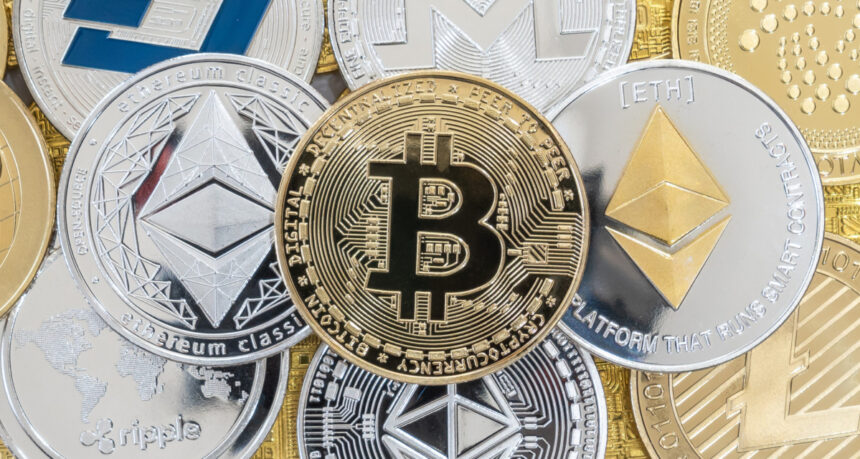Canada has quietly become a global leader in digital assets.
Canada was among the first countries to enact rules for crypto, starting with anti-money laundering guidelines in 2014. The country has repeatedly evolved its regulatory guidance in recent years, while U.S. lawmakers remain stuck in gridlock — even with a pro-crypto White House and a Republican-controlled Congress.
That regulatory clarity has made Toronto a launchpad for blockchain growth, and Wall Street is taking notice.
Robinhood’s recent acquisition of Canadian crypto firm WonderFi, owner of Bitbuy and Coinsquare, plugs it into Canada’s established user base.
“Canada is a very attractive market for us,” said Johann Kerbrat, Robinhood’s crypto chief. “It’s projected to be more than 30 million users using crypto here in Canada, with revenue projections of about $900 million in 2025.”
The company’s decision to spend just under $180 million to buy WonderFi, which has one of the longest-standing crypto licenses in the country, is a direct bet on that growth.
Galaxy Digital, the digital asset investing giant founded by Mike Novogratz, is headquartered in New York but listed in Canada because it couldn’t go public in the United States. After being among the first to launch spot bitcoin ETFs in the U.S., Galaxy will finally debut on the Nasdaq on Friday.
DeFi Technologies, a Canadian player focused on being the Strategy of Solana, is also planning a U.S. listing.
“A lot of companies have started on the Toronto Stock Exchange and are trying to uplist into the Nasdaq,” said Ondo Finance CEO Nathan Allman. “I think we’re going to see more of that.”
At Consensus 2025 in Toronto, one of the world’s largest crypto conferences, JPMorgan, Ondo, and Chainlink announced a $100 billion bet on blockchain with a new platform to tokenize real-world assets.
The two firms say the new offering allows treasuries to be tokenized and settled using blockchain, combining JPMorgan’s Kinexys Digital Payments network with Ondo’s blockchain infrastructure.
“It’s really the first time that there’s been this interoperability between a bank’s permissioned blockchain environment and a public blockchain,” Allman said.
Crypto dealmaking has shown signs of life in recent months, as the United States has shifted its regulatory approach under President Donald Trump.
The Federal Deposit Insurance Corporation and Federal Reserve have eased restrictions on banks handling crypto, rolling back prior guidance that required pre-approval for digital asset activities.
The Securities and Exchange Commission has also taken a significant step by rescinding its restrictive accounting bulletin, which had forced companies holding crypto assets for clients to record them as liabilities. The new approach aligns crypto custody with traditional financial instruments.
At the same time, the SEC has launched a new Crypto Task Force, inviting public input on how to better regulate digital assets.
“They want large enterprises like Citi to have a seat at the table,” said Ryan Rugg, global head of digital assets for Citi’s Treasury and Trade Solutions division. “They’re asking for our opinion, where I think in the past, it was not quite the case.”
The booking of Eric Trump, the president’s son and a leader of the newly-formed American Bitcoin, as a headline speaker, highlighted the growing presence of the U.S. in the crypto arena. The firm made waves when it launched in March, and already intends to go public through a merger with Gryphon Digital Mining.
“It’s important to remember: Most countries are totally neutral on blockchain,” said Dan Morehead, CEO of Pantera Capital. “The U.S. had a fairly antagonistic stance on blockchain which made it difficult for companies to get bank accounts, made it difficult for companies to go public.”
He said he believes many companies that would have gone public a few years ago will hit U.S. markets in the next six months.
“There’s obviously tremendous appetite in the public markets,” he said.
Israel-based crypto and stock trading platform eToro went public on Wednesday after pricing above its expected range. Shares soared nearly 29% on its first trading day.
The advancements in the U.S. aren’t without setbacks. A first-of-its-kind stablecoin regulation bill failed to advance in the Senate after Democratic lawmakers raised concerns about national security, while others expressed concerns about the president’s ties to crypto.










